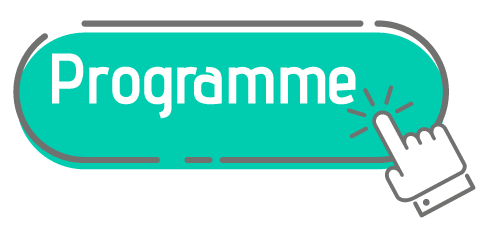What is TrustEat Summer School?
TrustEat Summer School is an initiative inside the TrustEat project to gather Early Stage Researchers (ESRs) with state-of-the-art, first-hand knowledge from renowned experts of IBM and WUR in the fields of blockchain and agrifood. Blockchain is a new technology that is going to redefine, reshape and eventually transform how the food value chain works.
Why Blockchain applied to the Agrifood sector?
Blockchain technology could transform the entire food industry by increasing efficiency, transparency and collaboration throughout the food system. The food blockchain technology would allow ensuring the food value chain integrity to consumers, that is, safety, traceability and authenticity. By using blockchain all the stakeholders in the food value chain will know where their food comes from in real-time data, which can really help increase trust and confidence about food production from start to finish.
Many of the world’s largest food companies such as Walmart, Unilever, Nestle, Tyson and Dole are investigating how blockchain technology can improve the security and efficiency of data storage and movement in the supply chain. That represents a new trend in the food system and suggests that in the next future more research and solutions will be required by the food industry. Research centres performing cutting edge research should be ready, having expertise and competencies, to face these challenges.
Objectives
The main goal is to share knowledge on how blockchain technology works and how it can be applied to the agrifood sector.
The final aim is to boost their research profile by learning concepts from leading experts and exchanging experiences with group leaders, scientific coordinators, and middle and senior management staff from INL, IBM and WUR.
Who is it for?
PhD students in any field of research.
INL students will have a preference.
24 students maximum per edition.
Scientific Lectures are also aimed to experienced researchers.
Registration
Participation is free of charge.
Participants will have to apply by filling this form until July 8 2021.
Acceptance of the Registration (notification by e-mail to all participants): postponed until July 19 2021.
Methodology
The Summer School will provide theoretical and practical contents in agrifood blockchain, as well tutoring, career advice and networking activities.
The 5 day Summer School will start with an introductory day, 3 days devoted to the 3 layers of the blockchain (Application, Physical and Digital Layer), and a final networking day.
When and where?
There will be 2 TrustEat Summer schools editions, one in 2021 and another one in 2022.
The 2021 edition will be virtual and will take place from the 30th of August 2021 till the 3rd of September 2021.
Topics
• Why Blockchain in the Food industry?
• Blockchain experiments/experiences
• Developing a blockchain application for a successful use case
• Data science and economics
• Blockchain: From Basics to Hyperledger Fabric
• Practical software engineering 101
• Nanoscale plasmonic and metasurface-based sensors
• Physical unclonable tags
• Food Safety from a Global Perspective
• Our food’s journey: tracing, transparency and sustainability
• Impact of COVID-19 Pandemic on Food Safety: Challenges and Opportunities
Activities covered:
• Scientific Lectures
• Training and webinars
• Tutoring
• Session on careers
• Networking and social event
• Satellite Event: DISH Consortium
Learning Outcomes
Overview of the tools and resources available for developing own use case;
Basic blockchain concepts and how they relate to applications;
The position of Hyperledger Fabric in the field and how to apply it;
What tools and procedures to use for efficient and effective software development;
Metasurfaces and plasmonic nanostructures: Working principles, design and fabrication strategies, and characterisation techniques;
Application to (bio-)sensing;
Outlook on mobile implementation;
Business and governance benefits that can be expected from blockchain applications;
Overview of the application landscape in terms of verticals, themes and use cases;
Understanding of the steps, choices and considerations for blockchain implementation in own use cases.








